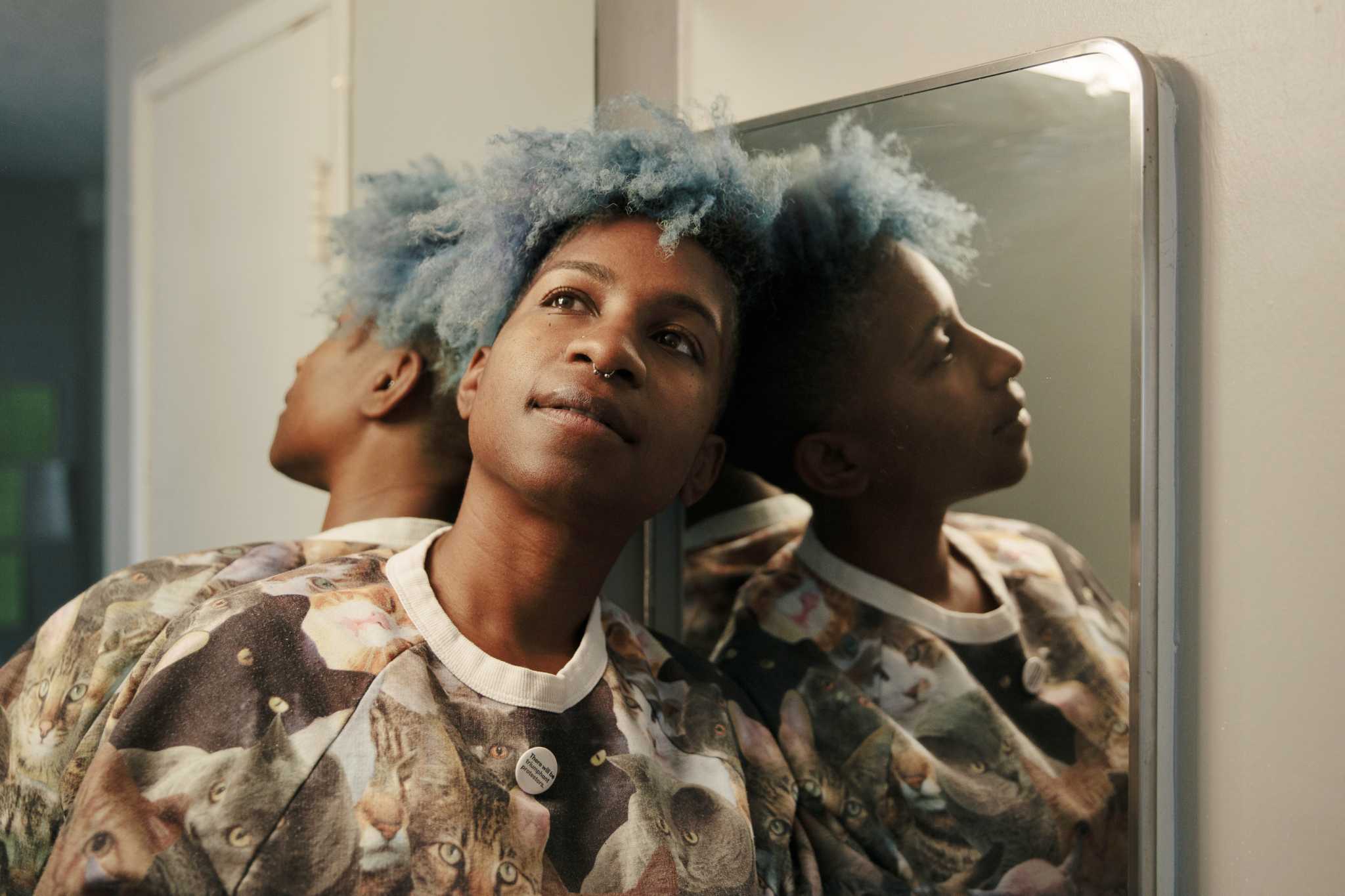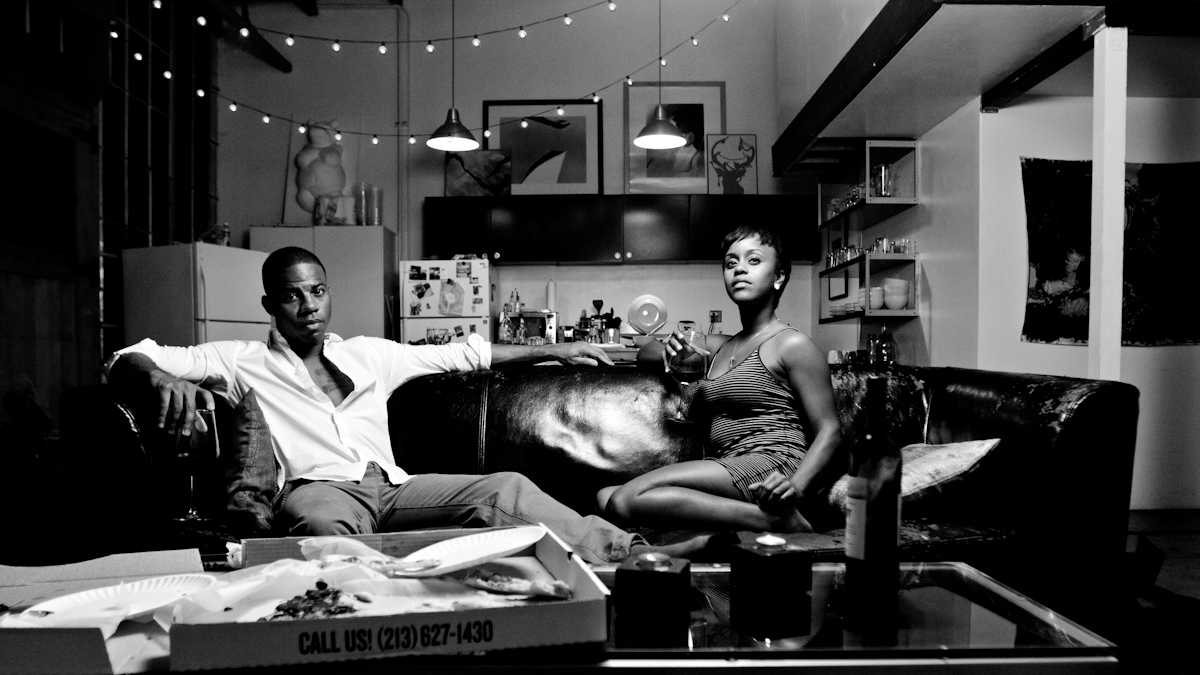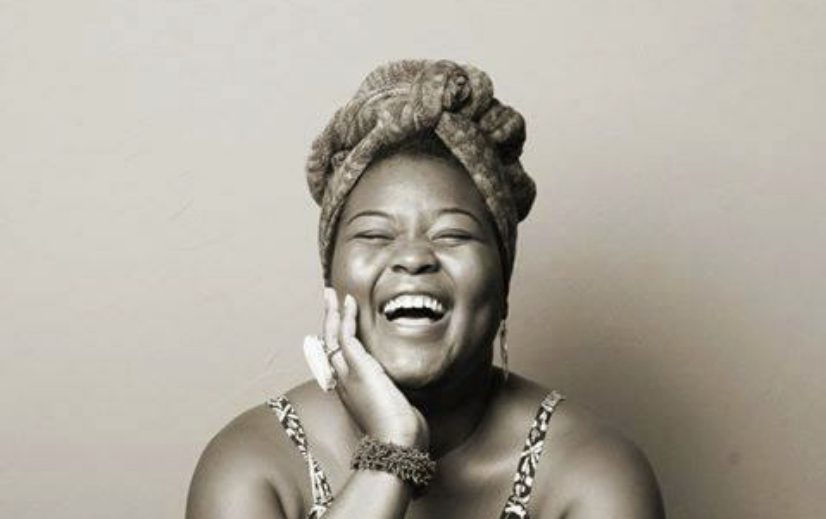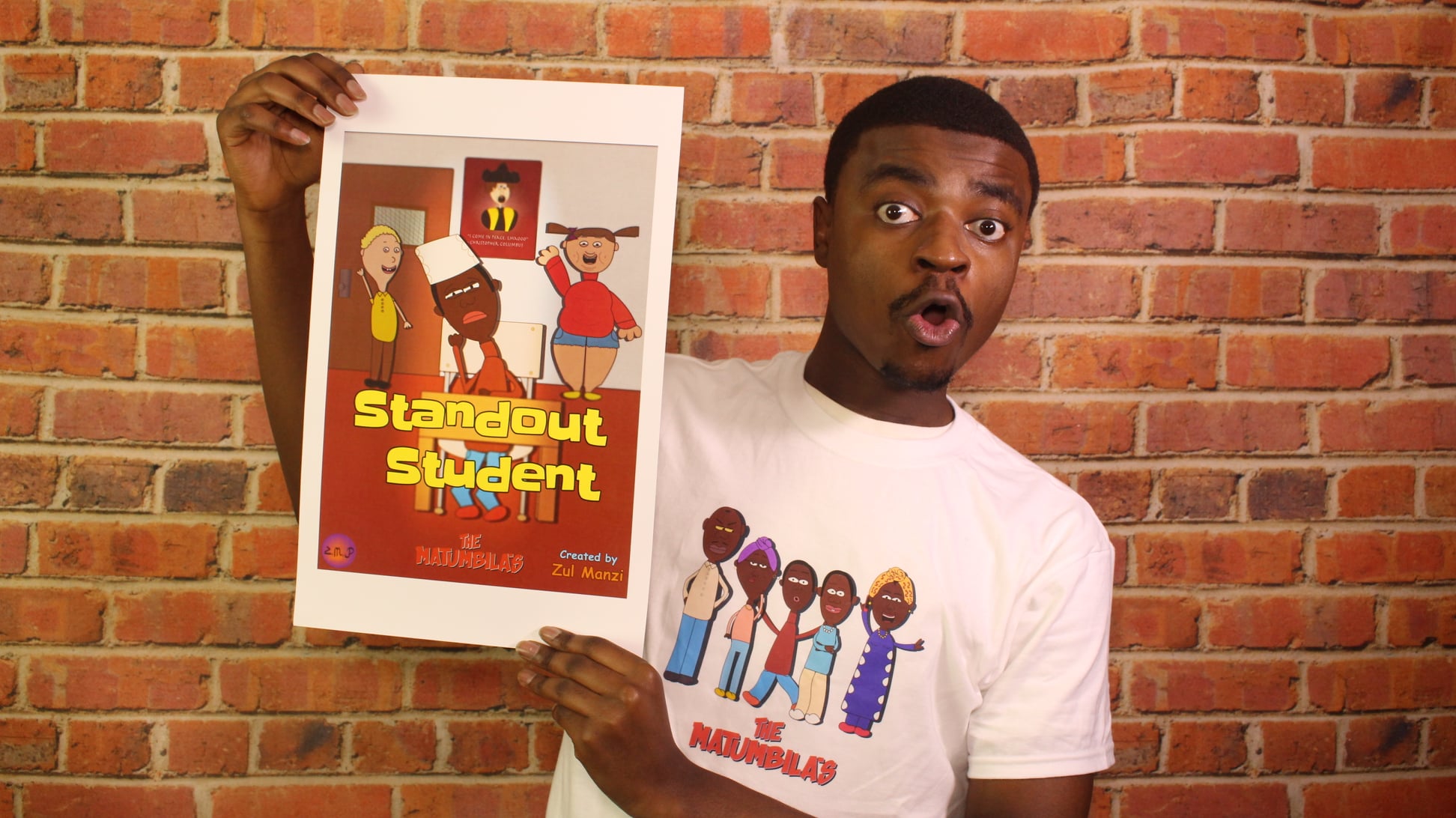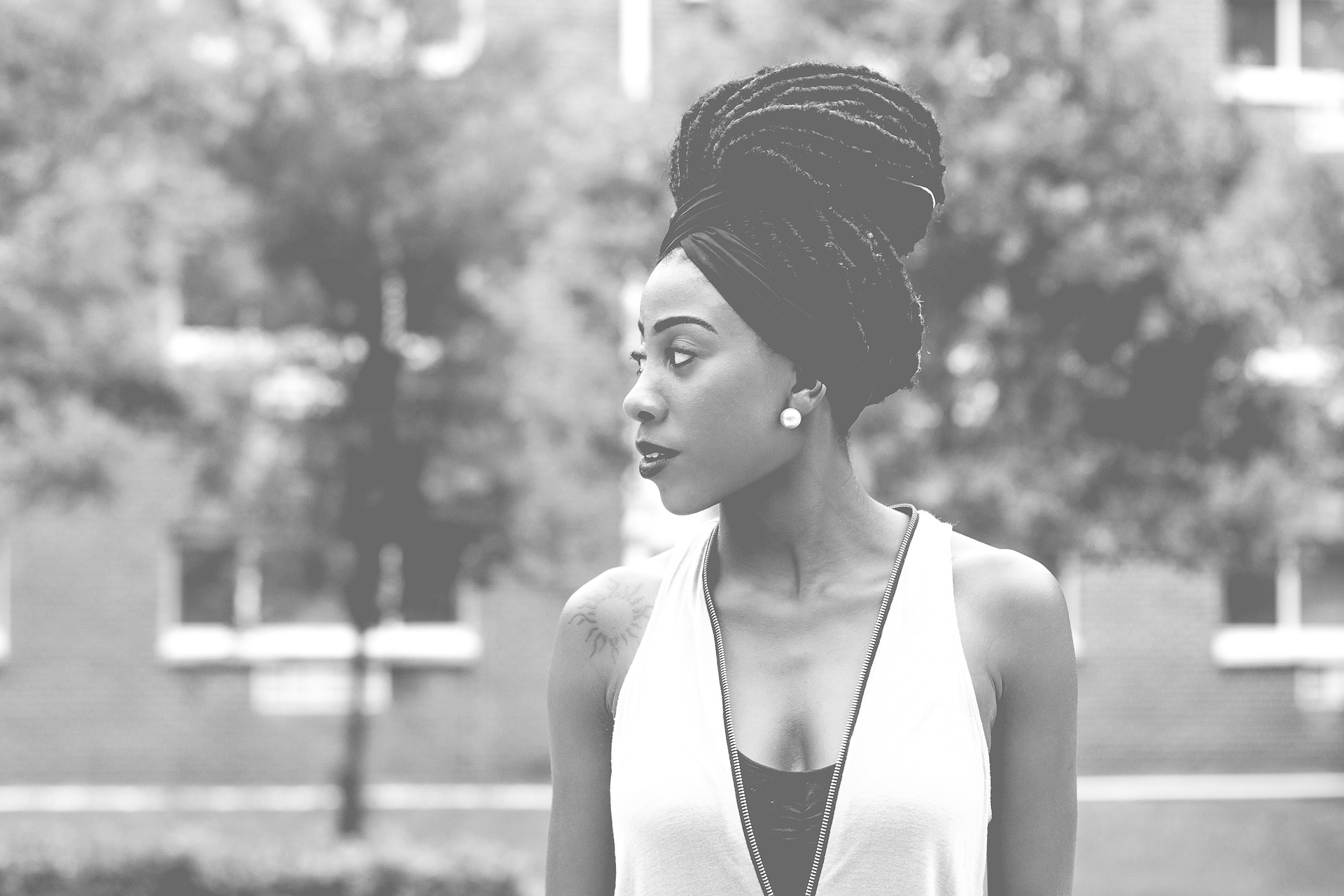SOLACE is a groundbreaking film that follows the life of a 17-year old orphan, Sole. The plot really digs into the importance of friendship while pulling back the curtain of different ways people deal with their own trauma. The film stars Hope Olaide Wilson, Lynn Whitfield, and Chelsea Tavares.
SOLACE is filmmaker Tchaiko Omawale’s debut feature film. Omawale wanted to use the plot to reach out to Black women in particular. The widely applauded film has been featured in the 2018 LA Film Festival.
kweliTV had the opportunity to sit down and discuss the film with Omawale.
kweliTV: You know, when we meet Sole she’s going through a lot. She just lost her dad. She has to move with a family member she’s never met before. Like she’s in a whole new environment. She’s in L.A. I see this is like a coming of age story in many ways. So as the creator, what did you want to do with this plot?
Omawale: For me, my first instinct when I was sort of crafting the story was to kind of share with a particular group of people, mostly Black women. But of course, it extends out there of what my insides felt like when I was young, when I was dealing with an eating disorder, but didn’t know that I had an eating disorder. And so I really wanted to with the experimental bits of the film, be able to have a sort of surrealist interiority. And then for me, I feel like as a Black woman, so much of my healing has really come from friendships. And so the big thing for me was I wanted to show how lots of people use things to escape pain. Everybody chooses different ways of doing it, you can do that through friendships, through codependency, like Guedado, the young teenage guy, is like doing it by taking care of Jasmine. Jasmine does it by, partying and cutting, Sole does it by eating, and her grandmother does it by sort of controlling Sole. But then also this relationship with the pastor, the pastor does it by having a relationship with the grandmother. And just like looking at the ways in which with humility we really are all trying to soothe ourselves. Sometimes we don’t make good choices about how we do that, but those are some of the things that I was thinking about as I was crafting.
kweliTV: So speaking of relationships, Sole gets into a friendship with Guedado and Jasmine. One thing they all have in common is they don’t have their moms. So one of my questions is, do you think that the characters look for a motherly figure in each other or other characters throughout the film?
Omawale: So Guedado, he mothered Jasmine. And I think, again, it goes back to this thing of just this idea of what is radical care or even radical mothering. Even though it’s not explicitly in the film, your question really brings up this concept that I love talking about with my peers and with other people the idea of Black radical mothering. You don’t have to be like me having an actual child. There’s so many different ways to mother and the idea of care is so important to Black folks, but particularly in a Black feminist context. I shot this film in 2015, so it was before I sort of knew or had a lot of political concepts, but it was still in me. I think there’s a way in which Black women, without having to know any sort of academic or scholarly terms, in which we mother each other as aunties, as friends, as cousins, as actual mothers. And it’s not just biological! I think that’s a very crucial thing in my sort of existence.
kweliTV: When Sole got the grant at the end of the movie, I really expected her to be super happy, like she’s finally about to go back to New York City. She’s going to be able to travel. She’s going to be able to go to school, but in a way, she still kind of spiraled after that. She still wasn’t happy. So how much of that do you think her environment took a toll on her eating disorder?
Omawale: You know, I would say for Black girls with eating disorders, living in an anti Black world is one way in which we’re choosing to cope with it. Sole being a dark skinned Black girl who’s not skinny and who doesn’t have eurocentric features, that is how she was coping. When I was writing I was imagining a dark skinned Black girl who’s growing up, who totally loves her father, sees how sad her father is that the mother is not around anymore. And like what she sees of her mother is somebody that looks completely different from her than what you see in the world. As a little girl, there are also people who look different from you that are called pretty. And so what do you do? It’s like you study because that’s one way of saying “I’m worthy”. You take care of other people, because that makes you feel worthy. And again, the challenging thing about being an indie filmmaker is how long the process takes. By the time I wrote and shot this film was before BLM. Before I think the younger millennials and Gen Z, there was a lot of discourse around self care. And so I had Gen X, I’m forty two. So when I was growing up, but when I thought about activists, I thought about my parents, other people my age who did so much for the movement and then nothing for themselves. And so I was kind of playing around with that with Sole. And just straight up, it’s like an eating disorder if you have anxiety or depression, even when good things happen to you, if you can’t receive love, if you’re not in a place where you can receive really it doesn’t matter what you get. You’ll always feel like it’s not enough, whether it’s fear of success, whether it’s just like particularly with eating disorders, we eat when we’re happy, we eat when we’re sad, we eat for any sort of emotion. And alcoholics might do the same thing. They drink when they’re sad. They drink when they’re you know, there’s always a reason to drink. There’s always a reason to eat. And so those are the things that I was going to do, the things that I was playing with, that I hope that when people watch it, it makes them think about other people they know who might be like that or makes them think about their own behaviors, even if it’s not with food like, you know, are they spending it away or are they fucking it away or are they drinking it away or they eating it away?
kweliTV: How would you describe Sole’s relationship with Guedado because it was kind of like her first, from my understanding, her first romance? How important do you think it was for either of them?
Omawale: The most important relationship for either of them is really the trio. I’m really interested in the idea of how friendships and community are really stronger than just the individual. So I think for Sole, it’s like a turning point in her life because it’s the first time anybody has looked at her with desire in that way. And I think that’s also what causes so much turmoil, because there’s a way in which her eating is also her hiding or obsessing about other people is her hiding. And so for somebody to see you, it freaks her out and that’s why she also eats and that’s why she then spirals out and then stops eating. It’s almost like it triggers a sort of panic response that the thing that you actually deeply want you’re getting. But I would say for Guedado, there’s a sort of relief of having to care for Jasmine. He’s not caring for Sole except for to show affection, which is what he does to Jasmine. But it’s such a different relationship with Jasmine, where he’s almost mothering Jasmine and with Sole he’s like inspired by he’s no longer the caretaker with Sole.
kweliTV: So for the final question, what would you want your audience to take most from SOLACE?
Omawale: Think about their own emotional landscape inside where in your own life are you covering things up with something, whether it’s food, alcohol, where you were in your life, are you doing so much for other people that you’ve neglected yourself? This especially when you think about Black women like we do so much for so many people. I just always want us to be thinking about, is that also a crutch for us to not do for ourselves?
SOLACE is streaming now on kweliTV!
